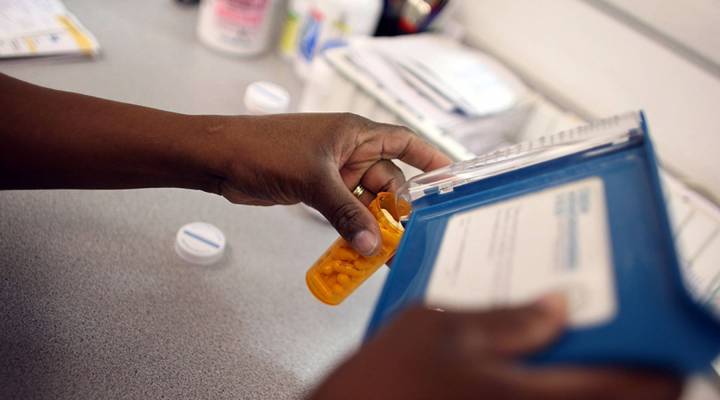
Kickbacks or a helpful service? Here’s why pharma is under fire
Kickbacks or a helpful service? Here’s why pharma is under fire

Pharmaceutical companies spend a lot of money to develop new blockbuster drugs — for research and to shepherd the meds through clinical trials. And of course, pharma tries to maximize profits once those drugs are on the market, with programs to encourage doctors to prescribe them and patients to stay on them.
There are pretty strict laws barring the companies from outright paying off doctors by giving them lavish trips or valuable swag to get them to write more prescriptions.
But some major drug companies are offering other, more indirect benefits to doctors and patients to pump up prescriptions. Last week, the California insurance commissioner sued AbbVie, the maker of Humira, a top-selling arthritis drug, over alleged kickbacks. The Wall Street Journal reports that several other companies are under investigation or the subject of lawsuits for similar tactics.
Right now, federal law bans drug companies from doling out cash or gifts to induce doctors to prescribe specific drugs.
“They used to send doctors on cruises and they’d send them to Hawaii golfing, and so we’ve kind of moved away from that,” said Lisa Gill, deputy content editor at Consumer Reports.
But Gill said drug companies have gotten creative. They help cover prescription drug copays and send nurses on home visits, which help patients but also encourage drug sales.
“It would be great if nurses could be sent to everybody’s house,” she said. “A drug assistance program can be the lifeline — the difference between getting a medication and not.”
Drug companies also have new incentives for doctors, and that could be more problematic, said Vivian Ho, director of the Center for Health and Bioscience at Rice University. For instance, providing “reimbursement support services” to help medical offices navigate the health insurance system.
“Sending staff to fill out the paperwork for reimbursements? That’s an inducement to increase the amount of usage of their drugs,” Ho said. Ho said that could be illegal if it involves a government health program.
It may seem like doctors are saving patients money when they work with pharmaceutical companies, said Genevieve Kanter, a medical ethicist at the University of Pennsylvania, but doctors need to disclose any “incentives” drug companies are offering.
“There may be other medications that may be better for them than the medications they’re getting the subsidies for,” she said.
Click the audio player above to hear the full story.
There’s a lot happening in the world. Through it all, Marketplace is here for you.
You rely on Marketplace to break down the world’s events and tell you how it affects you in a fact-based, approachable way. We rely on your financial support to keep making that possible.
Your donation today powers the independent journalism that you rely on. For just $5/month, you can help sustain Marketplace so we can keep reporting on the things that matter to you.












